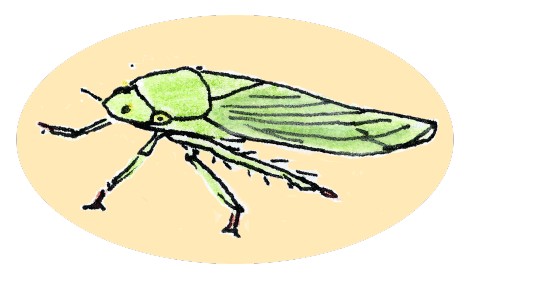- Leslie

- Feb 20, 2018
- 2 min read
Updated: Jun 19, 2018
On March 1, 2018, LEAF LITTER CRITTERS will welcome readers to the hidden ecosystem at our feet: the busy recyclers in the decomposer food web!
But I couldn't fit every litter critter into the book.
Let's play with Poetry--Prompt 3:
POWERFUL AND PLAYFUL WORDS
When I research a topic for a poem, I collect fun and powerful words that spark ideas and help my writing POP!
Powerful or playful words can have an interesting rhythm, or they might be action-packed verbs. Powerful words might bring readers feelings of excitement, beauty, humor, fear, sadness or happiness. A playful word might suggest a silly or meaningful rhyme (if the poet is rhyming). A powerful word might suggest details for our senses like sound, touch, aroma, movement, or might create a picture readers can see in their minds.

Hello, GRASS SPIDER!
Let's look for powerful and playful words in the
Grass Spider RESEARCH SHORTCUT:
Grass spiders are leaf litter predators who eat other animals like moths, flies, mosquitoes and ants.
Grass spiders have exoskeletons—their firm skeleton that gives them shape is an outside cover, not inside, like our skeleton of bones.
Grass spiders have eight bristly legs.
Grass spiders have two body parts, a cephalothorax and an abdomen.
Grass spiders have jaws with fangs on the end.
Grass spiders weave flat webs that are not sticky.
The web ends in a funnel, where the spiders hide.
Threads strung above the web knock down flying insects onto the flat part of the web. (can you find the knockdown threads near the dark funnel in the photo?)
A grass spider hiding in its funnel feels the vibration from a prey insect who has blundered onto the web.
Grass spiders can run very fast.
Grass spiders dash and dart out of their funnel hiding place at lightning speed to bite insects on their web.
When they bite with their fangs, they inject venom that knocks out (or stuns) their prey.
They grab their prey insect and drag it back into the dark funnel to eat in secret, without being seen.
Grass spiders do an important ecosystem job eating insect pests.
For further inspiration, visit entomologist Dr. Michael Raupp's site and scroll to watch this video of grass spiders rushing to hide
Remember, poems can be: serious...
scary...
funny...
beautiful...
or any feeling you choose.
Prompt idea 1:
Eight bristly legs...
Prompt idea 2:
In my dark funnel...
Prompt idea 3:
Which powerful or playful words inspire your poem?
Which story will you tell about the grass spider?
Or will you tell a story about something else?
I hope you'll share your poem in the comments!

